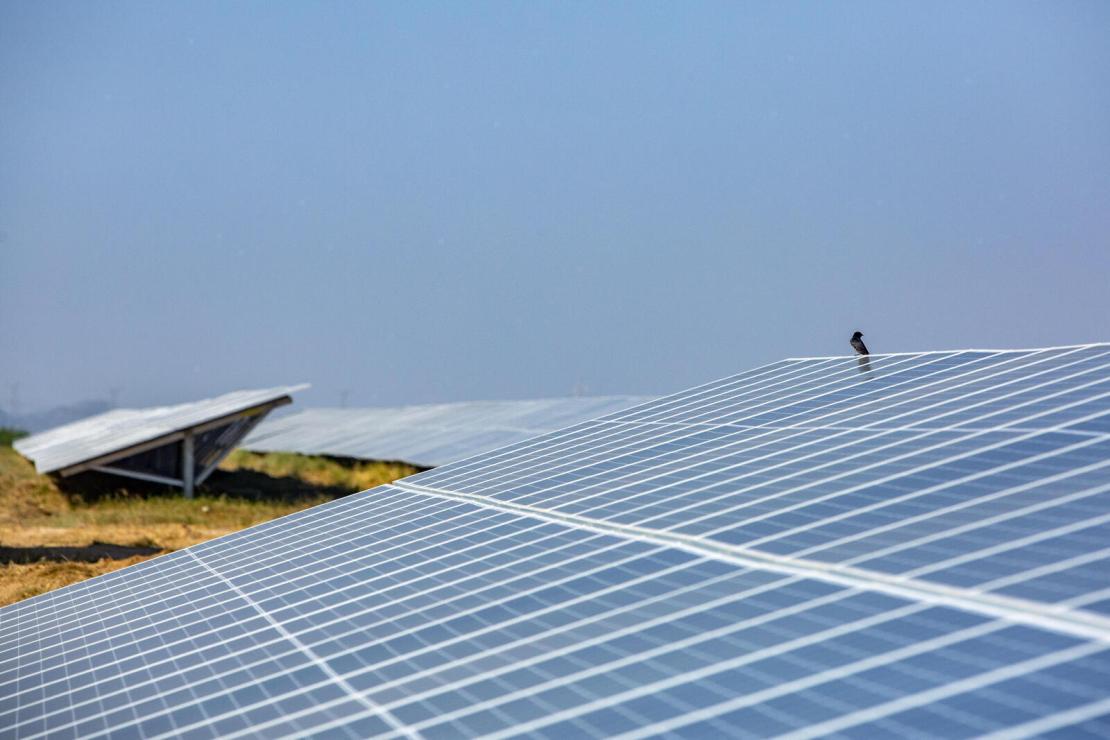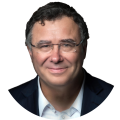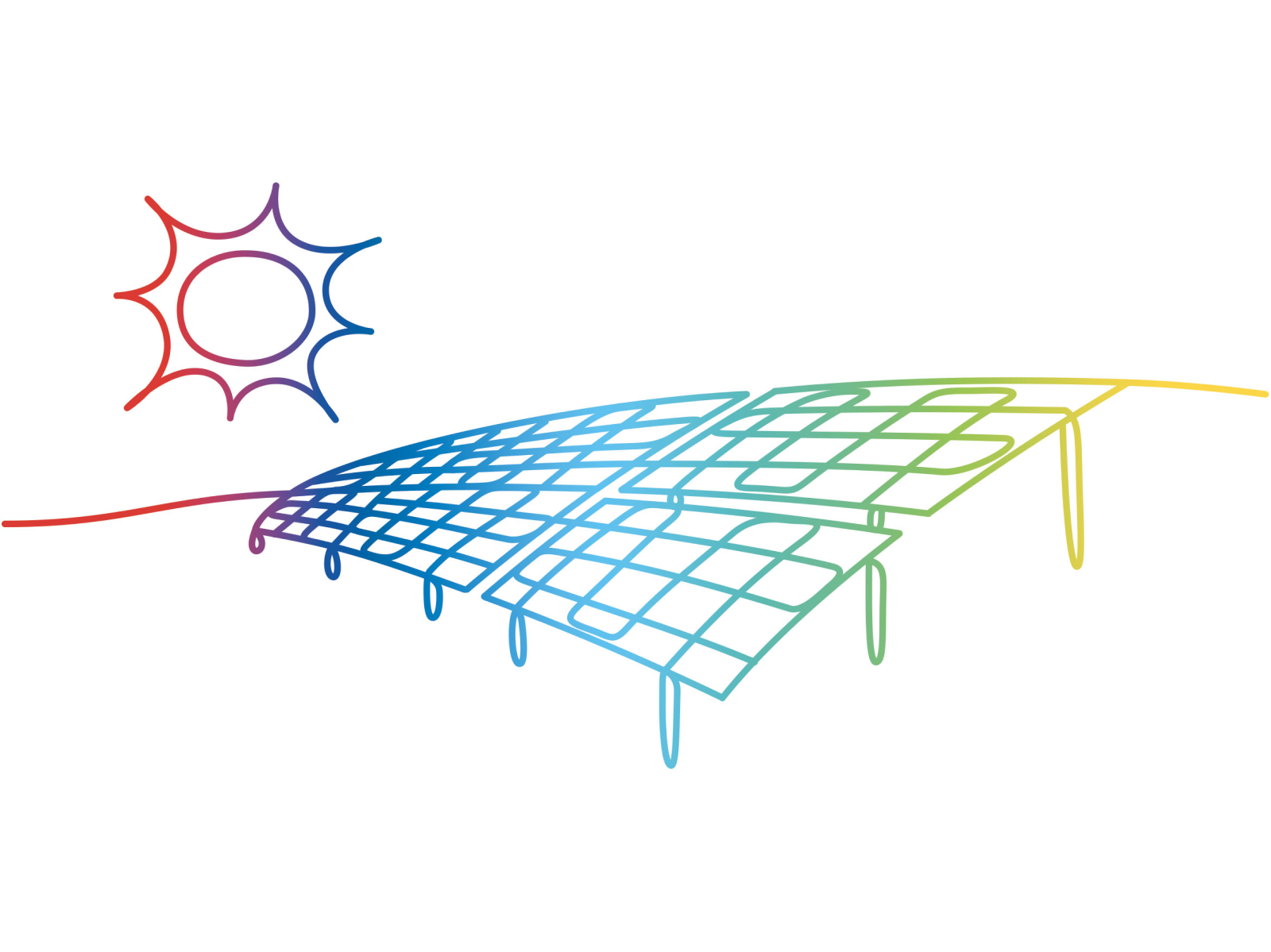Location: Qatar
Partners: TotalEnergies and Marubeni (40%), Qatar Energy Renewable Solutions (60%)
Main activity: Solar power generation
Commissioning: 2022

Located 80 km west of Qatar's capital, Doha, the Al Kharsaah Solar PV Independent Power Producer (IPP) project is the country's first large-scale solar power plant and is set to significantly reduce its environmental footprint. Al Kharsaah is owned and operated by SPV Siraj, a consortium formed by TotalEnergies and Marubeni (40%) and Siraj Energy (60%), the latter being a joint venture between QatarEnergy and QEWC (Qatar Electricity & Water Co.).
Qatar boasts the ideal conditions for developing solar energy with its exceptional sunshine and vast unoccupied spaces. This is where the Al Kharsaah solar power plant, developed by TotalEnergies and its partners QatarEnergy and Marubeni, was inaugurated in October 2022.
A landmark solar site for the country
The Al Kharsaah solar power plant covers 1,000 hectares (the equivalent of approximately 1,400 soccer fields) and features two million bifacial solar modules mounted on trackers for achieving substantial power gains.
The use of 3,240 installed string inverters further increases annual yield by allowing for better tracking of the maximum power point at the string level. The plant also features a semi-automated cleaning system for the solar modules that cleans the dust and sand off every single module once every four days.
The Al Kharsaah solar power plant was built in two phases of 400 megawatts-peak (MWp) each, and therefore has a full capacity of 800 MWp. During its first year of operation, it is expected to generate almost two million megawatt-hours (MWh), the equivalent energy consumption of approximately 55,000 Qatari households.
A new chapter for energy in Qatar
The start-up of the Al Kharsaah solar power plant represents a milestone in the country's energy history, since it is set to produce 10% of its peak electricity demand at full capacity. Over its lifespan, it will also enable Qatar to reduce its CO2 emissions by 26 million metric tons.







